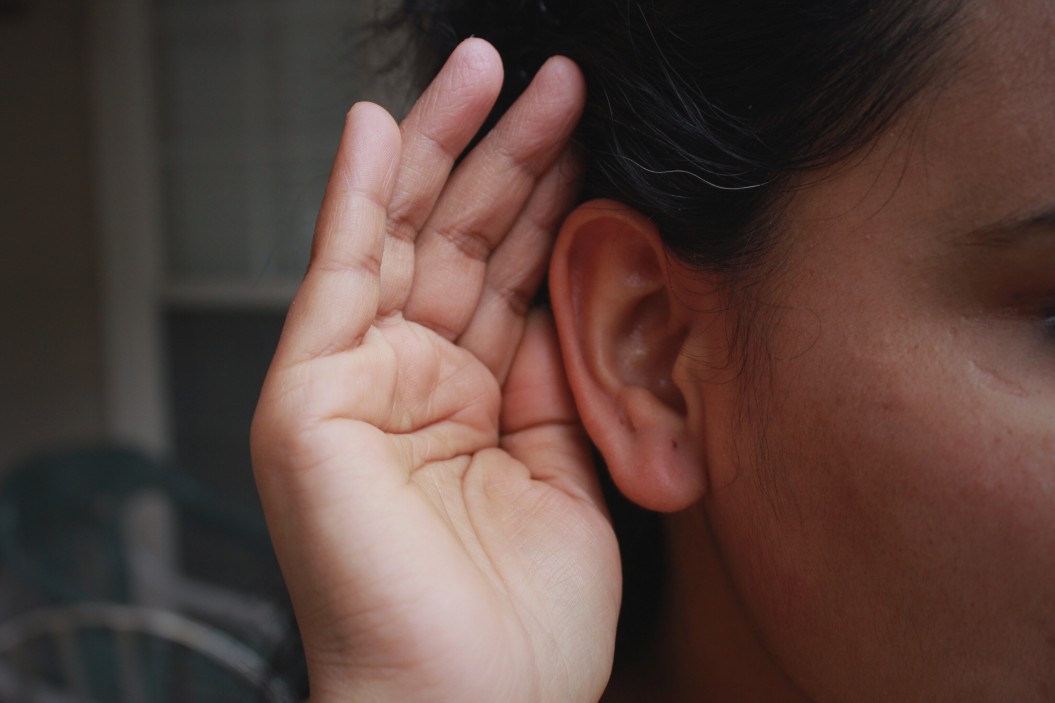Well, first of all, maybe you shouldn’t bother about ear training. Maybe it’s not for you. Maybe you just want to play a few songs on your instrument and have fun with it. I know plenty of talented musicians who never studied ear training and they are doing just fine.
When I first started playing the guitar, around age 16, I had never heard about ear training. I just wanted to learn some songs so I could impress girls. In the beginning I was like, “I never heard Jimi Hendrix or Kurt Cobain talking about training their ears. Why should I care?” So I didn’t.
But even though I wasn’t studying ear training I was still doing it unconsciously. When I wanted to learn a new song I listened to it and tried to imitate the chords, bass line and melody. I had no idea whether the chords were major or minor, what time signature it was, or what the relationship between the notes were. But I still managed – somehow – to find a way to play the song.
I didn’t get it right every time. Many times I could hear that a chord didn’t sound exactly as I played it. Sometimes, something was missing. It wasn’t until I started training my ears regularly that I gradually became better at recognizing the right chords. Suddenly I could hear that some chords were extended with extra notes. And I knew if the chord contained a minor or major seventh, a diminished fifth or something else. It felt great!
What is ear training and aural skills?
This is how ear training is defined on Wikipedia:
Ear training or aural skills is a skill by which musicians learn to identify, solely by hearing, pitches, intervals, melody, chords, rhythms, and other basic elements of music. The application of this skill is analogous to taking dictation in written/spoken language. As a process, ear training is in essence the inverse of sight-reading, the latter being analogous to reading a written text aloud without prior opportunity to review the material. Ear training is typically a component of formal musical training and is a fundamental, essential skill required in music schools.
A lot of complicated words. Nevertheless true.
To me it’s the process of understanding what you hear and knowing how something will sound before you play it (or sing it).
Here are some of the benefits you will gain:
- Being able to verbally communicate what you hear.
- Understand and know what you want to play before you play it, and where to put your fingers on your instrument. Also known as “playing by ear”.
- Better improvisation skills. You will be much more confident in your improvisation when you know what notes to play over which chords.
- Transcribing skills. You will be able to write down the music you hear. Be it chord charts, melodies, you name it.
Being able to communicate with your band members is crucial. If one of your band members ask you to add a 9th to a chord or sing a minor third, then you instantly know what they are talking about. Knowing how to play by ear, and where to put your fingers on your instrument when you improvise, also feels like magic. And transcribing is also a really valuable skill. It’s all about listening, understanding, and playing.
How should you begin your ear training?
It all depends on your current progress. Some people already have pretty good aural skills without ever spending time on ear training exercises. And some people are struggling to even repeat a note of a specific pitch.
But if you’re brand new to ear training you should probably begin with interval exercises.

Interval exercises
Intervals are the building blocks in music theory. Chords and scales are made up of intervals, and if you want to learn how to identify chords, you must first know which intervals the chords are made up of, and how to hear them.
If you are totally new to interval ear training you should start by practicing your ability to tell whether one interval is larger than another. EarBeater has specifically designed exercises for that. You can start here. It will get your ears ready for exercises where you will recognize and identify specific intervals.
When you feel like you know what you’re doing and it isn’t too hard to tell which is the bigger interval, you should move on to regular exercises for recognizing intervals. Go ahead and try that out here.
Remember to practice the intervals ascending, descending and in harmony.
You dont have to master all intervals before you move on to chord exercises. When you can identify a minor third and a perfect fifth, you can move on to major and minor triads exercises.
Chord Exercises
The next step is chords. You should study a bit of music theory so you understand how chords are constructed. You will get the basic explanation in EarBeater, but it’s a good idea to have a basic understanding of music theory first.
Start out with three-note-chords, also called triads, and learn how to identify major, minor, sus, diminished and augmented chords.
You can find chord exercises here.
It’s ok to switch back and forth between the different exercise types. If you are getting pretty good at triads, then go back and practice some more intervals, and come back take on four-note-chords.
When you have mastered identifying some of the chords, you should go ahead and practice the inversions of those chords. Here are a bunch of chord inversion exercises for you.
Scale Exercises
When you know the basic intervals you can begin practicing the identify scales exercises. Start with the simpler 5-note pentatonic scales, and then move on to the scales from the different modes: ionian (major), dorian, phrygian, lydian, mixolydian, aeolian (minor), and locrian.
Then move on to the more advanced and extended scales.
Are you ready to take the next steps?
Of course you are. All it takes is consistent practice and a willingness to learn. It’s better if you train your ear five minutes every day than an hour once a week. See if you can cram in 5-10 minutes of ear training a day, and you will begin to see progress pretty fast.
And remember – ear training is not hard, it’s fun. But it takes a little time to become good at. Just like everything else in life. And also remember not to compare yourself to others. It’s not a competition, and if you train your ear consistently, you will get there. Trust me!
FAQ
Why should I train my ear?
Training your ear will make it easier for you to learn improvisation and transcribe songs. It will also give you the vocabulary for communicating with other musicians and help you understand how something will sound before you play it (or sing it)
How should I train my ear?
There are many ways you can train your ears. You can learn to identify different musical intervals, chords etc. by using an app like EarBeater. Imitating and transcribing music is also a great way to train your ear.
